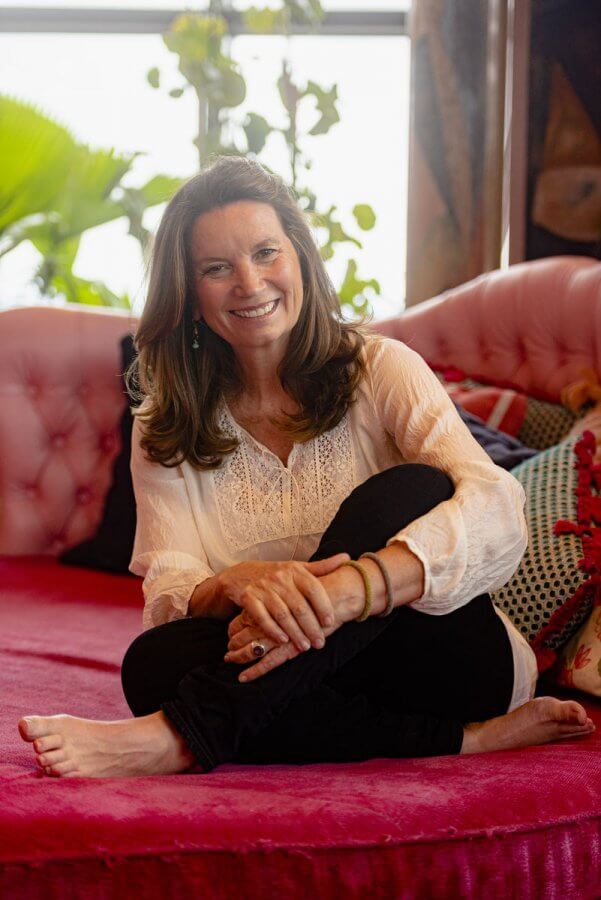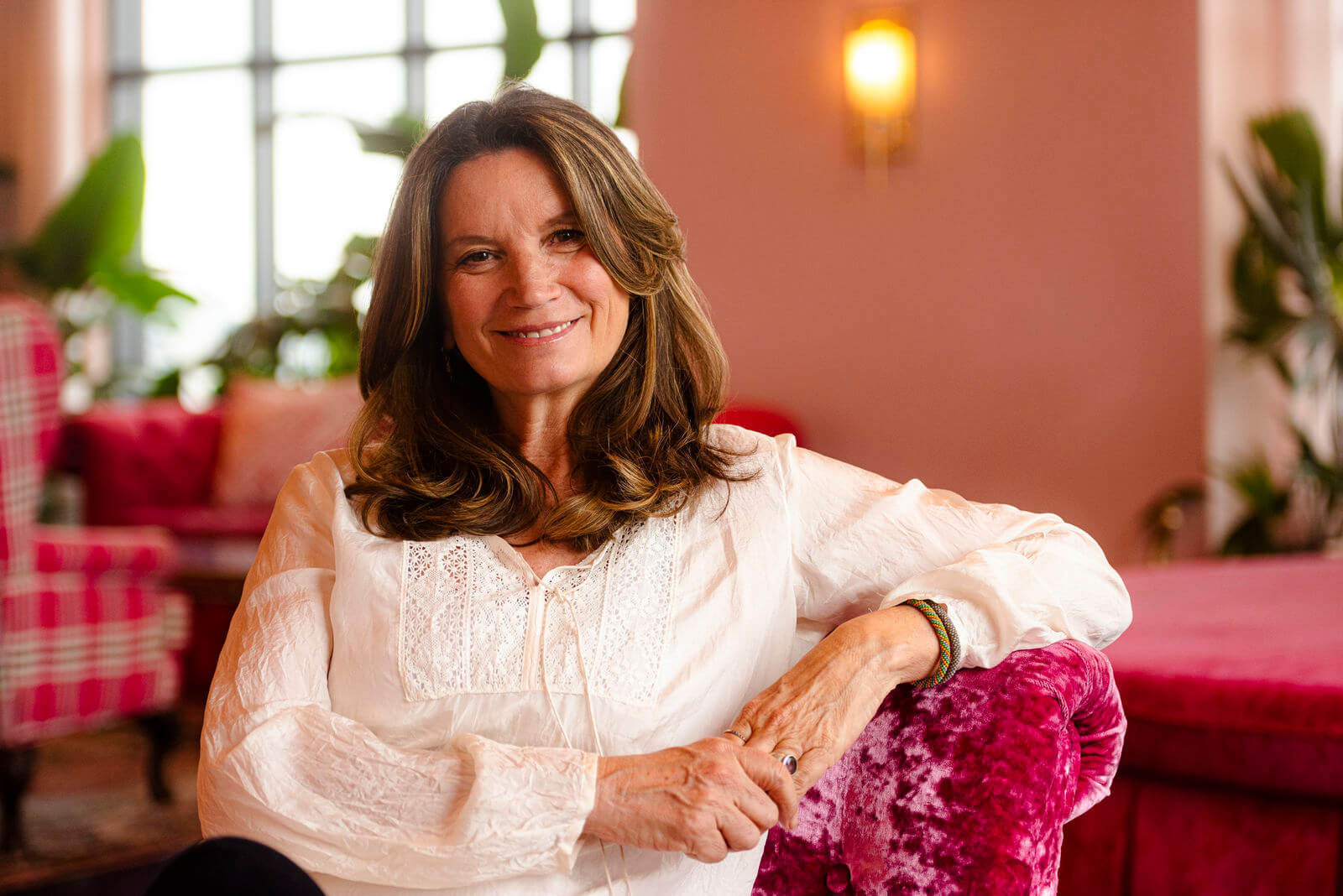Becca Stevens is a spiritual force to be reckoned with. The author, speaker, priest, and entrepreneur has been one of Nashville’s most impactful advocates for women, founding Thistle Farms in 1997, and turning it into the phenomenal legacy it is today. The center for healing and empowerment is a safe haven for female survivors of human trafficking, prostitution, and addiction, offering them support, meaningful employment, rehabilitation, and housing as they move through the recovery process and into independence. Author of more than a dozen books, including her memoir, Snake Oil: The Art of Healing and Truth-Telling, and her most recent release, Practically Divine, Becca encourages a deeper look at personal growth and the spiritual journey. Honored with an induction into the Tennessee Women’s Hall of Fame, the 2016 Top 10 CNN Hero of the Year Award, and even recognition from the White House as the 2011 “Champion of Change,” she’s made an indelible mark on Nashville and beyond. Please welcome this week’s FACE of Nashville, Becca Stevens.

Can you tell us a bit about your background?
Raised here in Nashville by a single mom with four siblings, I grew up loving the woods of Tennessee and the idea of working on justice issues with a bit of a southern accent. I went to Overton High School, then on to Sewanee and Vanderbilt for degrees. I have been an ordained Episcopal priest for 31 years, and from the moment I was ordained, I wanted to open sanctuaries for women survivors. I have been married to Marcus Hummon (recently referred to as a 21st-century composer by the Washington Post!). We have three sons, Levi, Caney, and Moses Hummon.
What inspired and led you to Thistle Farms? Was there a lightbulb moment?
When I first began working with women on the streets of Nashville, I had one child and was pregnant with my second. The idea of opening a two-year free sanctuary for women survivors had been simmering for years. Late one afternoon in 1994, I was leaving work and putting my four-year-old son in the car seat when he looked up at me and asked, “Momma, why is that lady smiling?” The billboard he could see was for a gentlemen’s club with a huge image of a woman in a catsuit smiling. The question broke my heart because I knew one day he wouldn’t ask it. The sign would just fade into the landscape where women are bought and sold without notice. On that day, I felt a fire burning in my chest and knew I needed to open the first home for women who have survived lives of trafficking, addiction, and prostitution. The woman in the catsuit was a sign. What I would also learn later is that because I have a history of child sex abuse in my background, I had a deep connection to the women I was serving in shelters and in ministry on the streets at that time. My son was a living prayer, and by the grace of God that day, I could see the sign and hear the prayer.

What do you hope to instill in the women who enter the Thistle Farms program? What do you hope they take with them when they leave?
Having served as the Founder and President of the Thistle Farms community for close to three decades, what I hope to learn and what I hope to instill has never wavered. Lots of other things have changed, and people have come and gone, but leaning into the truth that “love heals” in all its many facets and layers, is the constant goal.
What is the biggest reward in terms of Thistle Farms? What is the biggest challenge?
I’m revived whenever I sit in a circle of women creating something in order to help heal their families, their communities, and themselves. I am flying to Poland to gather for the first time with knitters who are all refugees from Ukraine. The issues of human trafficking and women refugees are inextricably linked, and organizing and knitting with them will be a great gift. The project is called Love Rises, and while there are huge hurdles with shipping, governments, and funding, the idea of knitting socks and listening to stories sends me to the moon and back.

You’ve taken Thistle Farms to such an inspiring and impactful level. Do you attribute part of Thistle Farm’s success to the support and encouragement of the Nashville community?
Our very first Thistle Farms grant was from the Christ Cathedral in Nashville. Cary Rayson, a long-time Nashville leader for women survivors, asked the church’s outreach committee if they would dedicate their Easter offering to us. Without that kind of love and support, there would be no Thistle Farms. Now we just need everyone reading this to stop by Thistle Farms and eat and shop!
You’re a woman of many roles, including author, speaker, priest, and entrepreneur. How do you carve out time for yourself, and what do you do for self-care?
To stay energized in my career and my personal life, I have to make time to be in the woods. In fact, almost all of the justice enterprises that I’ve started began with the words, “While I was walking in the woods, I was thinking…” I encourage everyone to get alone in nature and leave their phone at home when they can. Daily rituals such as taking baths, using essential oils, or sipping a hot cup of tea are essential for me. I also have one day each week blocked off called “no meetings.” It’s not a day off; it’s a day with no meetings. Walking alone, writing, and creating are essential parts of the work. I take off at least one month a year — time away to be with my family, away from Nashville. Self-care is about taking time to set your eyes on ‘the next thing.’

You’re such a champion of compassion and justice. In your opinion, what is the first step we can all take toward positive change and mindfulness?
I think we’ve all taken our first steps! The next step is exactly that, just a next step. Steps are small things that, when strung together, carry us anywhere in the world. The hope is just to do the next small thing and trust that when we do those small things a million times, big changes happen. When we started Thistle Farms, it was just five women walking into a house. Now, it’s a global movement for women’s freedom because thousands of people have taken thousands of small steps.
What is the best piece of advice you’ve ever received?
“If you want to save the woods, teach a child to love it.” In other words, to preserve what we love, help others love it.
Aside from faith, family, and friends, what are three things you cannot live without?
Moringa oil, yarn, chai tea.

All photography provided by Thistle Farms unless otherwise noted.
**********
Meet more inspiring Nashville women through our FACES archives!



















